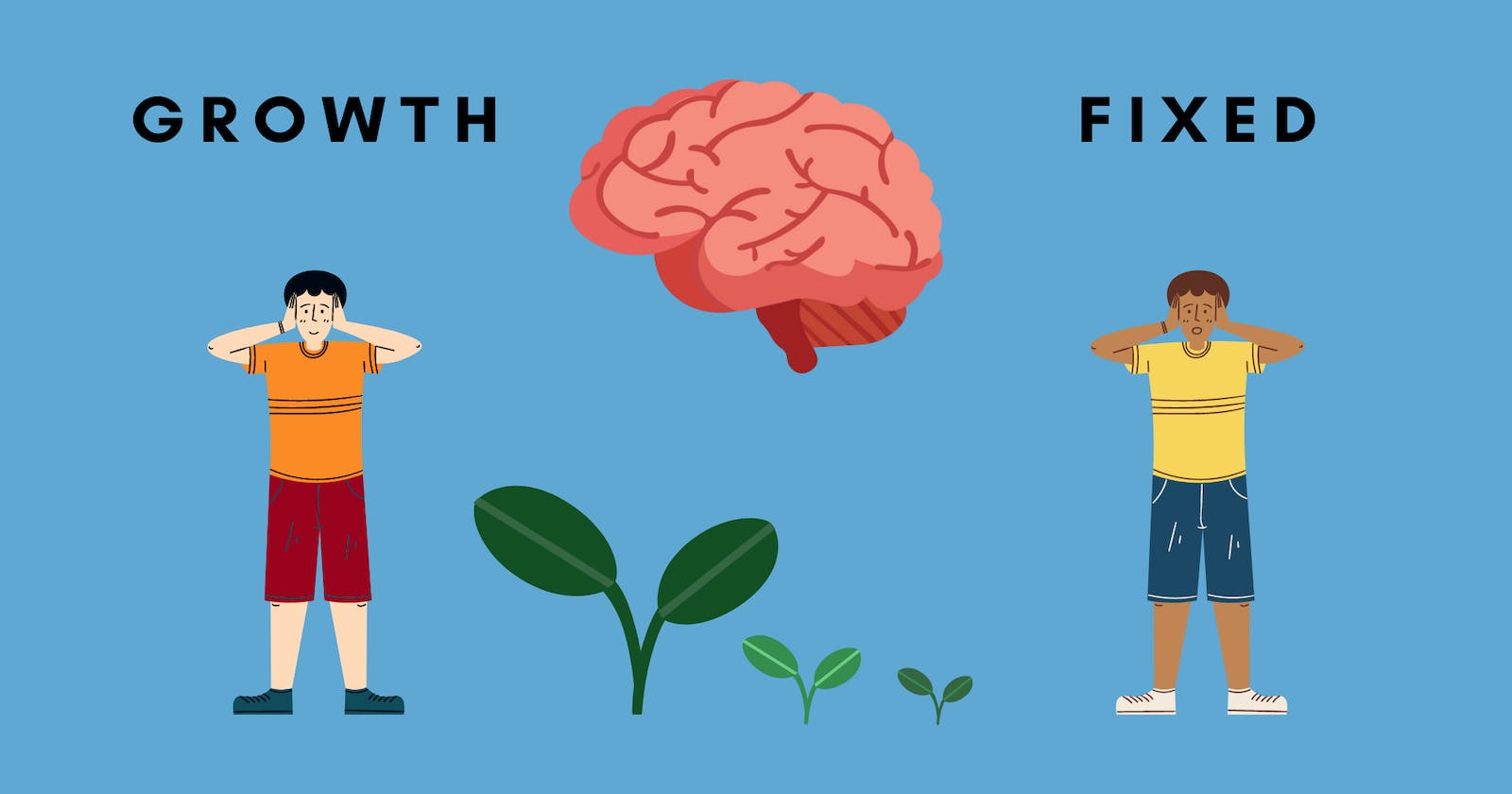Written by: Jacob Good, Ideas from Growth Mindset by Carol Dweck
PermalinkWhat is a growth mindset vs. a fixed mindset?
You're learning new things. Maybe it's how to code. Maybe it's a new framework. Maybe it's Kubernetes or AWS. Whatever it is, keep in mind that what you hear and say affects your success.
Mindset is defined as an “established set of attitudes held by someone.” Although the idea of changing one’s own mindset in psychological research is a hot topic and best-selling book theme, the idea is far from new. We are all familiar with many sayings that have summed up mindsets like “if at first, you don’t succeed, try, try, again." And it's absolutely true.
According to Dweck’s research and her book, there are two mindsets that someone can possess. These are the fixed mindset and the growth mindset.
People with a fixed mindset center their feelings around their own shortcomings, and often have a negative outlook. These people are likely to give reasons after falling short on something that includes “I’m stupid.” “My life is pitiful.” “Life stinks.” “I’m the most unlucky person on this earth.”
People with a growth mindset when reacting to the same setback will reply with “I need to try harder.” “I must be more careful in situations.” “I wonder why that person was upset at me.”
There is a clear difference between the two and how they may affect someone’s well-being. You should know how negative THOUGHTS can adversely affect your learning and well-being, even if that thought is only for a fleeting second. Teachers, parents, leaders, and coworkers should also know the effects of treating someone like they have a fixed mindset compared to treating someone like they have a growth mindset. Do yourself and others a favor. Perceive everyone with a growth mindset. We all make mistakes.
PermalinkPeople will start to act how others perceive them.
If people begin to hear that their natural talents are just not good enough to make them succeed, they begin to look down upon themselves and believe that it is because of their physiology. If this is how they feel, why would they try? “Having a gift” is also a common phrase to describe successful people. Athletes, artists, polyglots, and doctors may have been referred to as such. The term genius may be thrown around as well. However, truly successful people have also worked extremely hard to get where they are. There is no doubt that they’ve had countless hours of practice trying to grow.
So does this mean that we should provide praise and exude positivity to everyone that we encounter, work with, lead, or teach? Absolutely not! Let’s examine the difference between these two responses to getting an 80% on a quiz.
“Wow, you got 8/10. That’s great. You must be smart.”
“Wow, you got 8/10. That’s great. You must have worked really hard.”
The first example explains that they are innately smart. The second example explains that they worked hard to gain success. Rinse and repeat thousands of times a year to get the formula for how we are perceived by others. It may be clear to see the difference in writing, but it’s minimal. It's harder to hear differences when speaking, and it’s easy to forget.
As you're learning a new skill, which one should you say to yourself (or others)?
- You got 2500 kyū because you are smart.
- You got 80% because you put effort into learning.
- You couldn't complete it, because it's too difficult.
- You got no job offers because you did not apply enough.
The answer should be #2... Don't be fooled by 3 or 4! They are negative thoughts and ideas that provide excuses and can pull you down. They are not about growth. It's better to say (#3) I haven't studied that yet, with more practice I'm sure I can do it. Or (#4) I need to spend more time applying. It'll take more effort.
Those are subtle variations, but they are huge when it comes to how you perceive them. They can make the difference between working harder and giving up.
What you hear matters, and it matters a lot, especially when they are new to something and easily influenced by others. Influence yourself to study more and try harder. Don’t tell yourself that you are smart, and don’t tell yourself that you are dumb. Tell yourself that you worked really hard and got the correct solution. Tell yourself that you can study more (not that you didn't study enough!). Turn negative statements into growth statements. If you can repeatedly do this, you'll see that the compounded benefits throughout the years far outweigh only having a talent.
If you'd like to learn more about the Growth Mindset, please see Carol Dweck's TED Talk.

